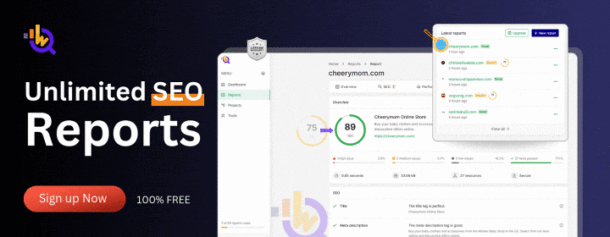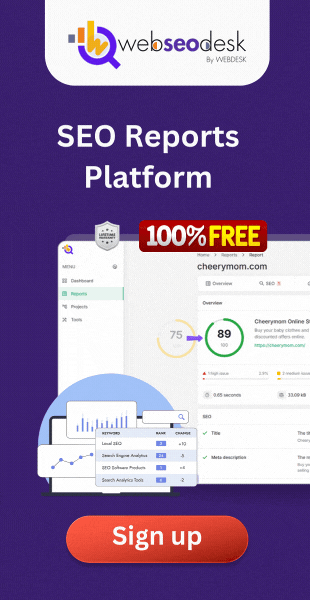Any effective SEO plan is built mostly on keywords. Within the realm of search engine optimization (SEO), keywords are the terms and phrases consumers type into search engines while seeking information, goods, or services. Optimizing your website with the correct keywords will help you greatly raise your search engine results page (SERP) rating and increase natural traffic to your website. The value of keywords in SEO and their means of contributing to SEO success will be discussed in this paper.
- Recognizing Keyword Aim
Knowing keyword intent is one of the main elements determining SEO success. Keyword intent is the motivation behind a user’s search query—that which they wish to discover or accomplish. Search intent can be mostly of three kinds:
The user is looking for material on a subject, say “how to maximize my website for SEO.”
The user is searching for a certain website or page, say “Facebook login,” with navigational intent.
Transactional Intent: The user wants to “buy sneakers online” or engage in another specific action or transaction.
Understanding the meaning behind the keywords can enable you to produce material more suited for your audience, improving your ranking on search results.
- Value of Keyword Search
Keyword research is the process of determining which most pertinent and efficient keywords your website should target. Good keyword research clarifies the nature of the search for your target audience and the degree of competition for those phrases. Discover highly sought-after keywords closely relevant to your company by using tools like Google Keyword Planner, SEMrush, or Ahrefs.
Good keyword study lets you:
Aim for the proper audience. Choosing keywords that fit your users’ search queries guarantees that your material will be seen by those most likely to be interested in your goods or services.
Point out areas lacking material. Keyword research can expose chances for fresh material and enable you to cover subjects underrepresented in your field of work.
Know the rivalry: Examining the competition for different keywords helps you to determine which terms are reasonable to target and which would call for greater resources to rank for.
- Keyword and on-page SEO
Once you have the correct keywords, you should deliberately include them in the material of your website. On-page SEO is the technique of making each page rank better and draw more pertinent traffic. Good on-page SEO calls for:
Including the main keyword in every page’s title tag will enable search engines to grasp the content of each page.
Including goal keywords, the meta description should capture the essence of the page. Meta descriptions affect click-through rates even though they have no direct bearing on rankings.
Headers: Structuring your material with header tags (H1, H2, etc.) increases its readability and facilitates search engine hierarchy of information understanding. Underline pertinent keywords in your headers.
Body Language: SEO depends on you naturally including keywords all through the body of your work. Steer clear of keyword cramming, though, since this can lower your ranks. Instead, concentrate on offering good material to meet customer questions.
- Targeted Traffic: Long-Tail Keywords
Usually with less competition than short-tail keywords, long-tail keywords—longer, more precise search phrases—are For instance, whereas “running shoes” is a short-tail keyword, “best running shoes for flat feet” is a long-tail term.
Because they generally draw more targeted, qualified traffic, long-tail keywords are crucial for SEO. Long-term keyword searches typically indicate a definite intent from the users; hence, by focusing on these terms, you may more effectively meet their demands. Long-tail keywords are also sometimes less competitive, which facilitates ranking for them.
- Content Strategy and Keyword Placing
Although proper placement of keywords is vital, equally vital is keeping a balanced and user-friendly approach. Keyword stuffing, or overloading your material with keywords, can compromise the user experience and damage your SEO initiatives. Smart search engines can now find overly optimized information and have evolved as such.
Work on producing excellent material that organically incorporates your keywords to avoid keyword stuffing. Give user experience a priority, then try to respond to the questions your readers are posing. All of which help to improve SEO rankings, engaging and educational material will inspire readers to stay longer on your site, lower bounce rates, and raise the possibility of conversions.
- The Part Keywords Play in Link Development
Apart from on-page improvement, keywords are quite important for off-page SEO, especially in link development. Other websites linking to your material are telling search engines your page is a reliable source of information. Backlinks must be contextually related to your material and include pertinent keywords, nevertheless, if they are to be successful.
Creating backlinks from reputable, authoritative websites inside your topic will boost your SEO and enable your website to rank better for your goal keywords. Including pertinent keywords in anchor text—that is, the clickable text in a hyperlink—helps you highlight even more the link between your material and the keywords you are aiming for.
In essence,
Since they enable search engines to grasp the content of your website and ascertain its relevance to consumers’ search queries, keywords are absolutely essential for SEO success. By means of efficient keyword research, on-page optimization, and knowledge of user intent, you may improve your SEO plan and generate more qualified visitors to your website. You’ll be well on your way to getting better search rankings and enhanced exposure on the search engine results page by concentrating on both short-tail and long-tail keywords, preserving a natural keyword placement strategy, and generating quality backlinks.












0 Comments